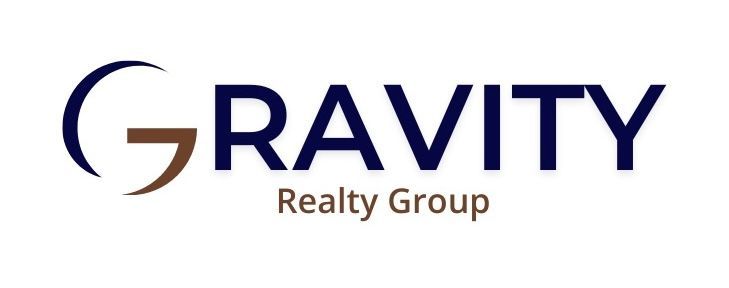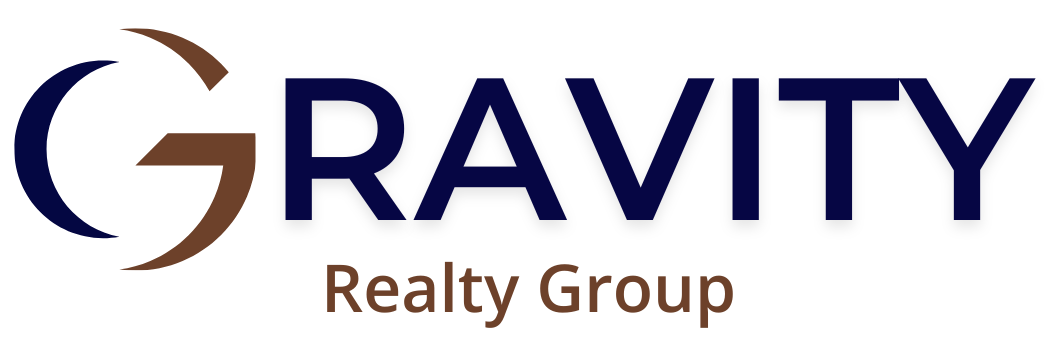Blog
Welcome To My Blog!

March 28, 2025
The Calgary real estate market is always evolving, making it essential for potential homebuyers to stay informed. Whether you're a first-time buyer, an investor, or looking to upgrade, understanding market trends, interest rates, and economic factors can help you make the best decision. So, is now the right time to buy a home in Calgary? Let’s explore the key factors influencing the market. 1. Calgary’s Real Estate Market Trends Calgary’s housing market has remained resilient in recent years, driven by strong demand, a growing population, and limited housing supply. Factors influencing the market include: Steady population growth – More people moving to Calgary increases housing demand. Job market stability – The energy, technology, and business sectors contribute to economic strength. Home prices – While prices have risen in recent years, Calgary remains more affordable compared to other major Canadian cities like Toronto and Vancouver. 2. Interest Rates and Affordability Interest rates significantly impact affordability. Over the past year, rates have fluctuated, affecting mortgage costs. Consider: Current mortgage rates – Locking in a rate when they are low can save you thousands over time. Affordability trends – Home prices in Calgary are still reasonable compared to other Canadian markets. Long-term investment potential – Buying now may offer value appreciation in the future. 3. Supply and Demand in the Market Calgary’s housing inventory has remained tight in certain price segments, leading to competitive conditions in some neighborhoods. Factors to consider: Limited housing supply – A shortage of available homes can drive prices up. Increased demand for single-family homes – Many buyers are looking for more space. New developments – Ongoing construction projects may increase supply in the coming years. 4. Advantages of Buying Now There are several advantages to purchasing a home in Calgary today: Stable real estate market – Calgary has shown long-term stability and resilience. Rental demand is high – If you’re considering an investment property, Calgary has strong rental demand. Build equity over time – Homeownership allows you to grow your wealth through equity. 5. Is It the Right Time for You? While market conditions are important, your personal circumstances matter just as much. Ask yourself: Are you financially prepared for a home purchase? Do you have job stability and a long-term plan to stay in Calgary? Are you looking for a home to live in or an investment property? Final Thoughts Calgary remains an attractive market for homebuyers and investors alike. With a strong economy, reasonable home prices, and solid long-term potential, now could be an excellent time to buy—especially if interest rates align with your financial goals. If you're considering buying a home in Calgary, Rob LeBlanc Real Estate is here to help. Our team of local experts can guide you through the process, ensuring you find the perfect property for your needs. Contact us today to start your home-buying journey!

By Rob LeBlanc
•
March 21, 2025
Selling your home and buying a new one is an exciting yet often stressful process, with many important decisions to consider. One of the biggest questions homeowners face is whether to sell their current home before purchasing a new one or to buy first and sell afterward. Both options come with their own benefits and challenges, and the decision ultimately depends on your personal situation, market conditions, and your level of comfort with the risks involved. Let’s break down both scenarios to help you make an informed decision. Buying First: The Risks and Benefits The Risks: When buying a home before selling your current property, the most significant risk is the possibility of carrying two mortgages simultaneously. If you haven’t sold your home by the time you take possession of your new one, you could end up paying for both homes—an expensive and stressful situation to navigate. Another risk comes when your new home purchase is conditional on the sale of your current home. If your property doesn’t sell in time, you could lose not only the new home but also the deposit you’ve paid, along with the costs of a home inspection or condo document review, if applicable. This can lead to a frantic and high-pressure situation where you feel compelled to sell your home quickly. When Buying First Might Work: That being said, buying first can be advantageous in certain circumstances. If you're in a seller’s market where homes are selling quickly, or if your home is in a desirable location with favorable market conditions, you might feel confident that your current property will sell without much delay. In such cases, buying first might allow you to secure the home you want before it’s taken off the market by another buyer. Buying first can also be beneficial for those who have very specific criteria for their new home. If you’re searching for something unique or hard to find, the process of finding the right property could take time. In this case, buying with an extended possession date and making your offer conditional on the sale of your current home may be a more suitable option. Selling First: The Safeguard of Certainty Why Selling First Makes Sense: For most homeowners, selling first is the safer and more predictable option. This is especially true if you need the proceeds from the sale of your current home to finance the purchase of your new property. While this doesn’t necessarily mean that your home must be fully sold with buyers lined up to move in, it does mean that your home should either be listed for sale or ready to go on the market. Without this, making a strong offer on your new home becomes challenging. Sellers prefer buyers who can submit a strong offer with a high chance of being able to close on the property, so when it comes to an offer being conditional on the sale of their current home, this means they are either already in the process of selling their current home, or it will be listed for sale within the next 24-48 hours. If your home is not ready for sale and your offer on a new home is contingent on the sale of your property, many sellers will be hesitant to accept an offer under these conditions. Tip: When a purchase is conditional on the sale of your current home, there’s typically a 24-48 hour clause. This allows the seller to keep their property on the market and, if they receive another offer, you’ll have 24-48 hours to waive all conditions, regardless of whether your home has sold. Mitigating the Pressure: One of the main concerns with selling first is the potential for feeling rushed to find your new home. To mitigate this, we recommend negotiating an extended possession date—typically around 90 days. This gives you a minimum of three months to secure your next home, ensuring you have enough time to explore the market without feeling pressured. It’s not uncommon for families to lose a home they love because their current property isn’t ready to sell. By having your home prepared for the market beforehand, you’ll be in a much stronger position to make an offer on a new home and avoid missing out on opportunities. Conclusion: Which Option Is Right for You? While there is no one-size-fits-all answer, we generally recommend that homeowners prepare their current home for sale before making a purchase. This ensures that you can make a strong, confident offer on your new home, knowing that the sale of your current property is either in progress or close to happening. That being said, if you have a very specific home you’re looking for or if you’re in a particularly hot market, buying first might be a viable option—provided your current home is ready to be listed as soon as you find your next property. Buying and selling a home at the same time can be a daunting experience, but with the right guidance and preparation, it doesn’t have to be overwhelming. We specialize in helping homeowners navigate these types of transactions and provide peace of mind during one of life’s biggest transitions. If you have any questions about selling your home, buying a new one, or just need some advice about the real estate market, feel free to contact me. My goal is to serve you and provide the clarity you need to make the best decisions for you and your family. Let’s make your real estate journey as smooth and stress-free as possible!
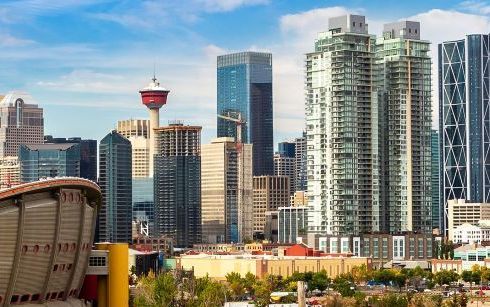
March 19, 2025
Buying a home is an exciting milestone, but it’s also a complex process that requires a solid understanding of local real estate laws. In Calgary, homebuyers must navigate legal requirements, contracts, and financial obligations to ensure a smooth transaction. At Robert LeBlanc Real Estate , we want to help you make informed decisions when purchasing a home. Here’s what you need to know about Calgary’s real estate laws. 1. Understanding the Purchase Contract In Alberta, real estate transactions are governed by legally binding contracts. When you submit an offer to purchase, it includes key terms such as: Purchase Price & Deposit – The agreed-upon price and required deposit amount. Conditions – Standard conditions include financing approval, home inspections, and condo document reviews (if applicable). Possession Date – The date when ownership officially transfers to the buyer. Once an offer is accepted, both parties are legally obligated to fulfill their commitments unless a condition is not met. 2. Legal Requirement: Hiring a Real Estate Lawyer Alberta law requires homebuyers to work with a real estate lawyer to complete the transaction. Your lawyer will: Review the purchase contract to ensure it complies with provincial laws. Conduct a title search to verify legal ownership and check for liens or encumbrances. Handle the transfer of funds and registration of the new land title. Having a lawyer ensures your purchase is legally protected and free of potential risks. 3. Alberta’s Land Title System All real estate transactions in Calgary are recorded with the Alberta Land Titles Office . This system guarantees secure property ownership and ensures that no unregistered claims exist against the home. Before purchasing, buyers should review the title to check for easements, encroachments, or restrictions that could impact their ownership rights. 4. Property Taxes and Other Fees When purchasing a home in Calgary, buyers should be aware of additional costs beyond the purchase price, such as: Land Title Transfer Fees – A fee paid to register the property under your name. Property Taxes – Paid annually based on the home’s assessed market value. Condo Fees – If buying a condominium, monthly fees contribute to maintenance and shared building expenses. 5. Buyer Protections Under Alberta Law Alberta has regulations in place to protect homebuyers, including: Real Property Report (RPR) – This legal document shows the property’s boundaries and any structures on it. Sellers must provide an updated RPR with a municipal compliance stamp. Home Warranty for New Builds – The Alberta New Home Buyer Protection Act requires that all newly built homes come with warranty coverage for structural integrity, water leaks, and major defects. 6. The Closing Process Once conditions are met, the deal moves toward closing. Your lawyer will finalize documents, ensure funds are transferred, and complete the legal registration of your home. On possession day, you’ll receive the keys and officially become a homeowner. Understanding Calgary’s real estate laws helps buyers make confident, informed decisions. Working with an experienced real estate professional and legal team ensures a seamless and legally sound transaction. At Robert LeBlanc Real Estate , we’re here to guide you through every step of the home-buying process in Calgary. Thinking about buying a home? Contact us today for expert real estate advice!

By Rob LeBlanc
•
February 13, 2025
Building a custom home in Calgary is an exciting and rewarding venture. It’s an opportunity to create the perfect space tailored to your needs, style, and preferences. However, with such a significant investment on the line, it’s crucial to ensure that you get the best value and that your funds are properly protected throughout the entire process. There are several strategies you can employ to ensure the successful completion of your custom home, and a bit of guidance from an experienced professional can make a world of difference. 1. Clarify Your Vision and Set a Realistic Budget Before you start selecting contractors, architects, or land, it’s important to first define your vision for your new home. What do you envision for your family’s lifestyle? Do you want an open-concept living space? Is energy efficiency a priority? Write down your must-have features and separate them from your “nice-to-haves.” Once you have your vision clear, the next step is creating a realistic budget. It’s easy to get caught up in the excitement of custom features and upgrades, but having a solid budget will help you make better decisions down the line. Be sure to leave room for unexpected costs — things like rising material prices or changes during construction — are a normal part of the process. A well-structured budget will keep you grounded and ensure your financial goals are met. 2. Choose a Trusted Builder with a Proven Track Record Choosing the right builder is one of the most important steps in the process. A skilled and reputable builder will not only bring your vision to life but will also help navigate the challenges that can arise during construction. When looking for a builder, take your time and do your research. It’s essential to look at their past projects and client reviews, but also ensure they are licensed, insured, and experienced in building homes similar to the one you're envisioning. While you can certainly find a builder on your own, having the right local connections can give you access to the best professionals. Builders with a strong reputation in Calgary can often be recommended by industry insiders, including real estate professionals who have worked with them before. This can help you save time and potentially avoid costly mistakes. 3. Get Multiple Quotes — But Don’t Just Focus on Price It’s always a good idea to get multiple quotes when hiring contractors or suppliers for your custom home project. This gives you an understanding of what fair pricing looks like and helps you gauge what kind of value you're getting. However, when reviewing quotes, don’t just focus on the bottom line. A price that’s too low might seem like a bargain, but it could be a red flag for cutting corners or using inferior materials. On the other hand, a quote that’s significantly higher than others might be an opportunity to explore how you can scale back your costs without sacrificing quality. An experienced real estate professional can provide insights into pricing trends in the area, helping you avoid overpaying or underestimating project costs. Working with someone familiar with the local market allows you to gauge the quality of contractors and assess which options offer the best value. 4. Land Selection: Where Location Meets Value In Calgary, location is key when choosing land for your custom home. Whether you’re looking to build in one of Calgary’s established neighborhoods or a newly developing area, understanding land values and zoning regulations is essential. Factors like proximity to schools, parks, public transportation, and future community developments can all impact the value of your land. Many prospective homeowners overlook the hidden costs that come with land — things like soil quality, the need for additional landscaping, or the availability of utilities. If you don’t have experience navigating land purchases, working with someone who does can help you avoid these hidden costs. Realtors are often able to recommend plots that are not only ideal for your needs but also offer long-term value and growth potential. 5. Prioritize Energy Efficiency for Long-Term Savings In Calgary, energy-efficient homes are not just about saving the environment—they’re also about saving you money. Given the city’s cold winters and hot summers, ensuring your home is properly insulated, has high-performance windows, and is built with energy-saving materials can help reduce your monthly bills significantly over time. While energy-efficient options can have a higher initial cost, they often pay for themselves in the long run through savings on utilities. A local real estate professional can help guide you on what features are in demand in Calgary and can even assist in finding rebates or incentives for energy-efficient homebuilding options. 6. Have a Solid Contract in Place Once you’ve selected your builder, it’s time to draw up a contract. This agreement should include clear terms on the scope of work, timelines, and payment schedules. It's also important to ensure that any changes to the original plan — such as upgrades or modifications — are documented through change orders. Make sure that you’re comfortable with the terms of the contract, especially regarding payment schedules. For example, instead of paying a large upfront deposit, it’s often best to tie payments to completion milestones. This ensures the work is done as agreed and that both parties are satisfied with the progress at each stage. A real estate professional can offer additional contract-related advice to protect your interests, ensuring that all aspects of the construction are covered. While you can certainly handle this part independently, having an expert’s guidance can give you peace of mind. 7. Secure Proper Insurance Building a custom home carries risks, both from construction delays and from unforeseen events such as weather or accidents. To ensure that your funds are protected, it’s crucial to have the right insurance coverage in place. Builder’s risk insurance protects the home during construction, while general liability and worker’s compensation protect you from accidents that might occur on the job site. Working with a professional can help you understand the types of insurance you’ll need and ensure you’re covered for every situation. Without the right coverage, you might be left with unexpected costs that could derail your project. 8. Ongoing Project Management and Communication Building a custom home is an ongoing process that requires coordination between various stakeholders — contractors, suppliers, architects, and designers. Regular communication with your builder is essential to staying on track and managing expectations. Having a local expert to act as a liaison can be incredibly helpful. Realtors often have extensive networks in the construction industry, and they can help facilitate communication between you and your builder, ensuring everything runs smoothly. If problems arise during construction, an experienced real estate agent can provide a fresh perspective and guide you through any potential hurdles. Conclusion Building a custom home in Calgary is an exciting journey, and there are numerous ways to ensure you get the best value for your money while protecting your investment. With careful planning, working with the right professionals, and having the proper insurance and contracts in place, you can avoid common pitfalls and ensure your dream home becomes a reality. While it’s certainly possible to navigate this process on your own, having the right support can save you both time and money — and ultimately help you achieve the custom home of your dreams in Calgary.
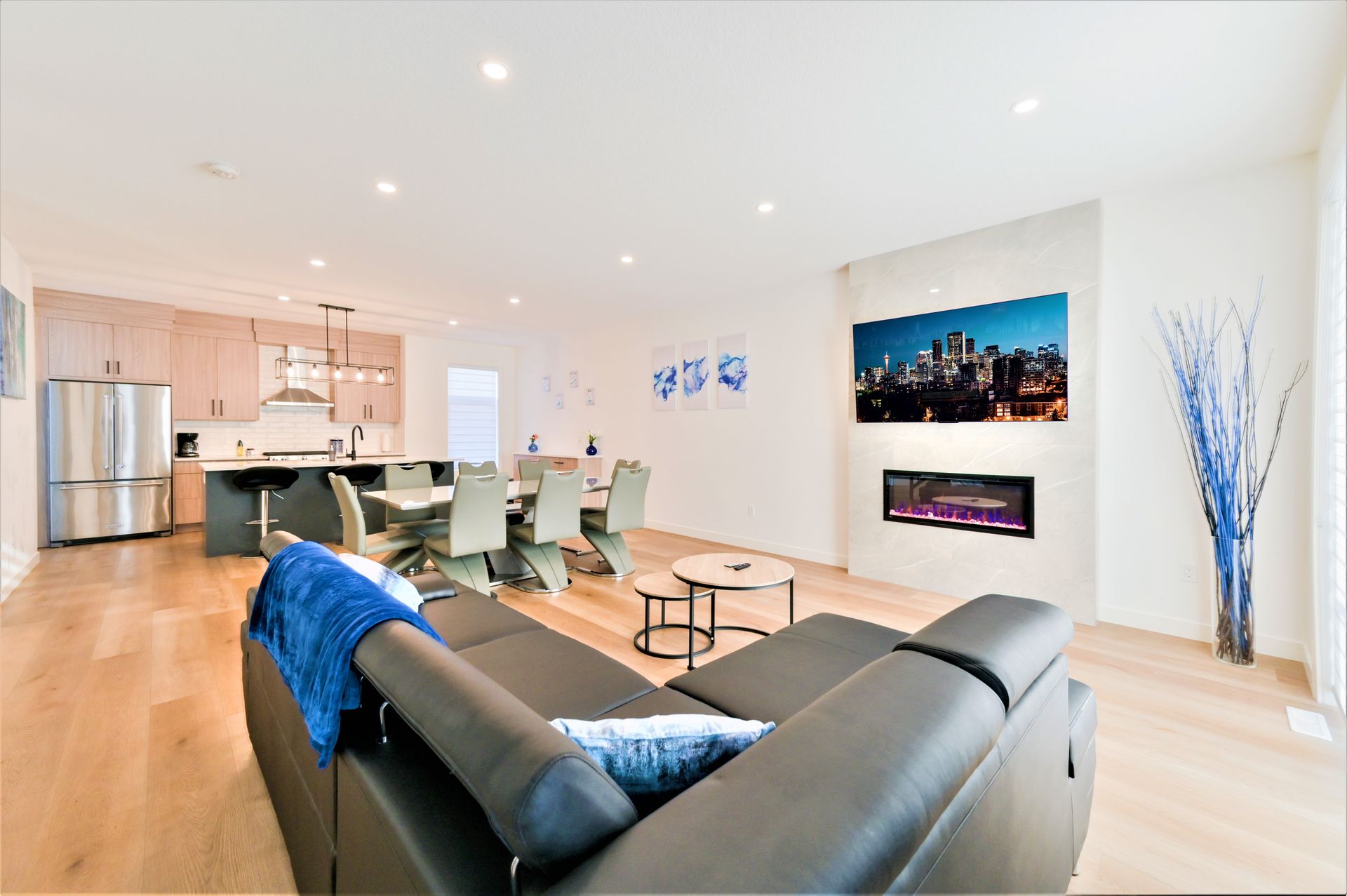
December 3, 2024
If you're a property owner in Calgary looking for a way to maximize your real estate investment, Airbnb could be the perfect solution. Short-term rental platforms like Airbnb offer flexibility, high earning potential, and a chance to cater to Calgary's bustling tourist and business traveler market. However, starting an Airbnb business requires careful planning and strategy. This guide will walk you through the essential steps to transform your property into a thriving short-term rental. 1. Understand Calgary’s Airbnb Regulations Before listing your property on Airbnb, familiarize yourself with local laws and regulations. In Calgary, short-term rentals are governed by specific municipal bylaws. Here's what you need to know: Business License : You must obtain a short-term rental business license from the City of Calgary. Fire Inspection : Ensure you are prepared for the Fire Inspection which is a requirement of the licensing process. Insurance : Invest in comprehensive insurance to protect your property and comply with local requirements. Tax Obligations : Be aware of the lodging tax, also known as the Tourism Levy in Alberta, applicable to short-term rentals. Failing to comply with these rules can lead to fines or legal complications. 2. Prepare Your Property for Guests First impressions are everything in the hospitality industry. To attract guests and earn glowing reviews, your property must stand out. Here’s how: Renovations and Repairs : Fix any structural issues and ensure the space is clean, safe, and well-maintained. Modern Furnishings : Opt for stylish, durable furniture and decor that appeals to a wide audience. Essential Amenities : Provide essentials like Wi-Fi, a fully equipped kitchen, fresh linens, and toiletries. Safety Features : Install smoke detectors, fire extinguishers, and secure locks to prioritize guest safety. 3. Optimize Your Airbnb Listing A compelling Airbnb listing is crucial for attracting bookings. Include these elements to make your property irresistible: Professional Photos : High-quality images showcase your property’s best features and create a strong first impression. Detailed Descriptions : Highlight unique features like proximity to Calgary attractions, modern appliances, or panoramic views. Competitive Pricing : Research similar listings in your area to set a competitive nightly rate. Adjust prices seasonally to reflect demand. Guest Reviews : Encourage guests to leave reviews, as positive feedback boosts your listing's visibility and credibility. 4. Provide an Unforgettable Guest Experience The key to a successful Airbnb business is exceptional guest service. Going above and beyond ensures repeat bookings and glowing reviews: Clear Communication : Respond promptly to guest inquiries and provide detailed check-in/check-out instructions. Local Recommendations : Offer a guidebook with tips on Calgary's best restaurants, attractions, and transportation options. Personal Touches : Small gestures, like a welcome basket with snacks or toiletries, leave a lasting impression. 5. Manage Your Airbnb Efficiently Effective management is essential for maintaining a smooth operation. Consider these strategies: Time Management : Block off time for cleaning and maintenance between bookings. Outsourcing Tasks : Hire a professional cleaning service and consider property management support to handle day-to-day tasks. Monitor Performance : Track metrics like occupancy rates, guest reviews, and revenue to refine your strategy. 6. Assess Financial Viability Running an Airbnb involves upfront costs and ongoing expenses. Budget for the following: Start-Up Costs : Renovations, furnishings, and licensing fees. Recurring Costs : Utilities, cleaning, maintenance, and Airbnb platform fees. Profit Analysis : Regularly evaluate your earnings to ensure profitability and adjust strategies if needed. Why Calgary is Ideal for Airbnb Calgary is a thriving city that attracts a diverse range of visitors year-round, from winter sports enthusiasts heading to the Rockies to business professionals attending conferences. With its booming tourism industry, vibrant arts scene, and proximity to iconic attractions, Calgary provides a fertile ground for Airbnb success. Start Your Airbnb Journey with Robert LeBlanc Property Management Navigating the complexities of starting an Airbnb business can be challenging, but you don’t have to go it alone. At Robert LeBlanc Property Management & Real Estate, we specialize in helping property owners in Calgary maximize their investments through professional property management and real estate expertise. Whether you’re new to Airbnb or looking to scale your operations, our team can provide the guidance and support you need. Contact us today to learn more about how we can help you turn your real estate property into a lucrative Airbnb business! By following this guide, you’ll be well on your way to creating a successful Airbnb property that not only generates income but also offers guests a memorable stay in the heart of Calgary.

November 26, 2024
Buying a home is an exciting milestone, but navigating Calgary’s dynamic real estate market requires careful planning and informed decision-making. At Robert LeBlanc Property Management & Real Estate, we’re committed to helping homebuyers make confident, informed choices. To ensure your journey to homeownership is smooth, here are five common mistakes to avoid when buying a home in Calgary. 1. Failing to Get Pre-Approved for a Mortgage One of the most significant missteps buyers make is shopping for a home without first securing mortgage pre-approval. Calgary’s real estate market can be competitive, and having pre-approval demonstrates to sellers that you’re serious and financially prepared. Why it’s important: Establishes your budget, so you don’t fall in love with a property you can’t afford. Saves time by narrowing your search to homes within your price range. Strengthens your negotiating position when making an offer. Tip: Work with a trusted lender early in the process to secure pre-approval and lock in a favorable interest rate. 2. Overlooking Neighborhood Research Calgary is known for its diverse neighborhoods, each offering unique amenities and characteristics. Skipping this step can lead to buyer’s remorse if you find that your new area doesn’t align with your lifestyle. Key considerations: Proximity to schools, parks, or public transit. Traffic patterns and commute times. Future development plans that might affect property value. Tip: Spend time exploring potential neighborhoods at different times of the day to get a feel for the area. 3. Skipping the Home Inspection In a hot real estate market, it can be tempting to waive the home inspection to make your offer more appealing. However, this can lead to unexpected and costly surprises down the road. Why it’s crucial: Identifies hidden issues like foundation problems, mold, or outdated electrical systems. Helps you budget for necessary repairs or renovations. Provides leverage for renegotiating the purchase price or asking for repairs. Tip: Always hire a qualified home inspector with experience in Calgary’s unique climate and housing stock. 4. Letting Emotions Take Over Buying a home is an emotional process, but letting feelings cloud your judgment can lead to poor decisions. Whether it’s falling for the aesthetics of a home that doesn’t meet your needs or engaging in a bidding war that stretches your budget, emotions can derail your plans. How to stay grounded: Focus on your list of must-haves and deal-breakers. Consult your real estate agent for objective advice. Be prepared to walk away if the property doesn’t meet your criteria or financial goals. 5. Ignoring Additional Costs First-time buyers often focus solely on the purchase price and overlook the additional costs associated with homeownership. This oversight can strain your budget after moving in. Common expenses include: Property taxes and home insurance. Utility bills and maintenance costs. Closing costs such as legal fees, land transfer taxes, and inspection fees. Tip: Factor these expenses into your budget before making an offer to ensure you can comfortably afford your new home. Conclusion Avoiding these common mistakes can save you time, money, and stress during your home-buying journey in Calgary. At Robert LeBlanc Property Management & Real Estate, our team is here to guide you every step of the way, from finding the perfect home to closing the deal. Ready to start your search? Contact us today for expert advice and personalized service tailored to Calgary’s real estate market. Your dream home is waiting!
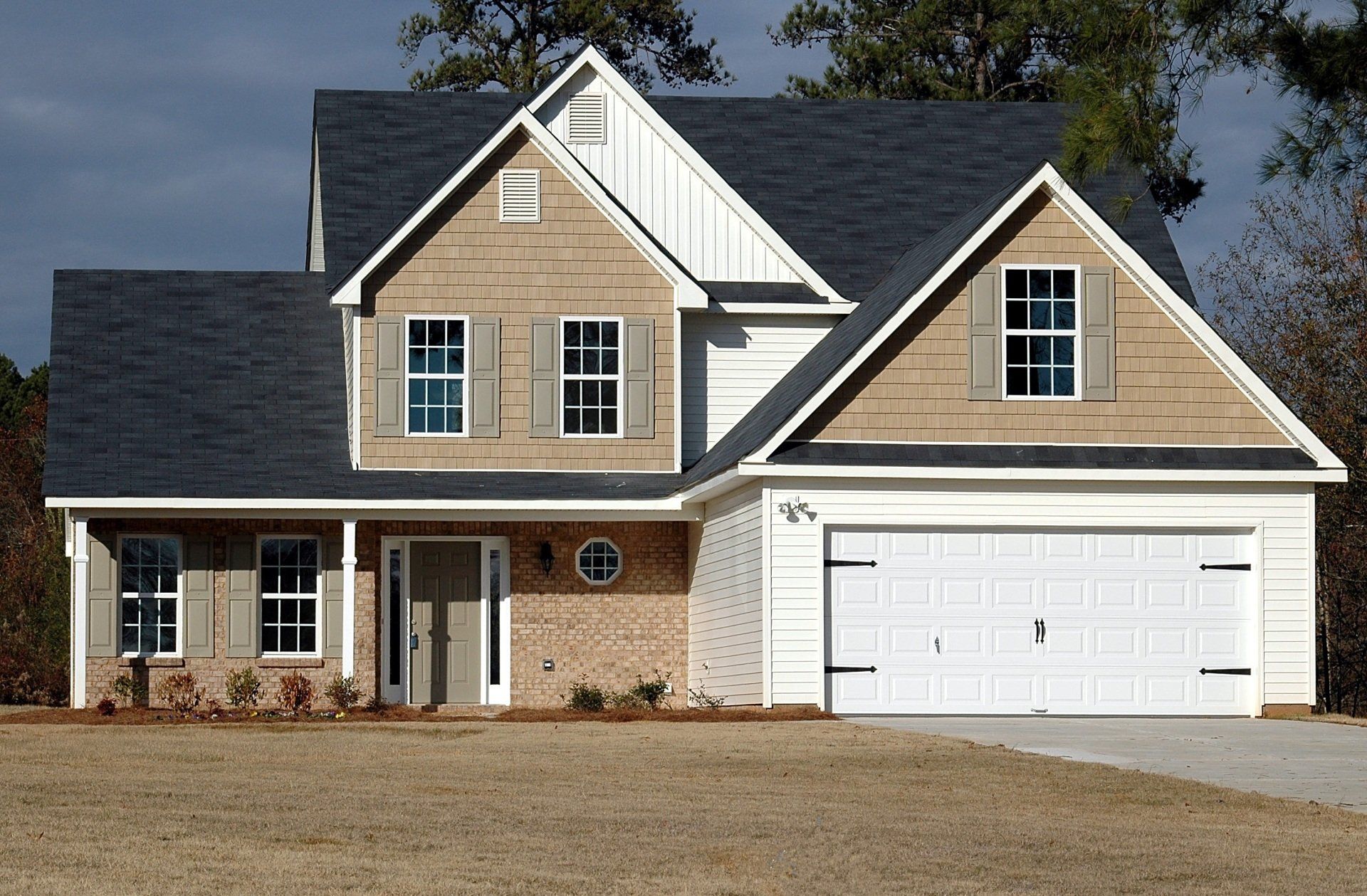
November 18, 2024
As Calgary continues to grow and evolve, so does its housing market. Whether you're a renter looking for a new place to call home or a property investor exploring new opportunities, understanding the rental market trends in Calgary is essential. At Robert LeBlanc Property Management & Real Estate , we’re committed to helping both tenants and property owners navigate this dynamic landscape. In this article, we'll provide an overview of the current rental market trends in Calgary, Alberta, so you can make informed decisions. Understanding Calgary’s Rental Market Landscape Calgary, known for its robust economy and vibrant lifestyle, has always been a popular destination for families, professionals, and students alike. However, like any major city, Calgary's rental market is influenced by a variety of factors, including economic conditions, population growth, and shifts in housing demand. Key Factors Influencing Calgary’s Rental Market Economic Resilience and Job Market : Calgary’s economy has traditionally been driven by the oil and gas industry. However, in recent years, there has been a diversification into technology, healthcare, and other sectors, creating more job opportunities and attracting newcomers to the city. Population Growth : Calgary has seen steady population growth, partly due to its appeal as a livable city with a high quality of life. This influx has increased demand for rental properties, especially among young professionals and families. Interest Rates and Homeownership : Rising interest rates have made homeownership less affordable for many, pushing more people into the rental market. As a result, rental demand has increased, driving up prices in certain neighborhoods. New Construction and Inventory : The construction of new rental units, including purpose-built rentals and condos, has helped stabilize the market to some extent. However, demand continues to outpace supply in some areas, leading to competitive rental conditions. Current Rental Market Trends in Calgary Let’s take a closer look at some of the key trends shaping Calgary's rental market today. 1. Rising Rental Prices Over the past year, Calgary has experienced a noticeable increase in rental prices. According to recent reports, the average rent for a one-bedroom apartment in Calgary is around $1,500 per month, while two-bedroom units are averaging closer to $2,000. This upward trend is partly driven by increased demand and limited inventory in popular neighborhoods. Why Are Rents Increasing? Higher Demand : As more people move to Calgary for job opportunities, demand for rental units has surged, particularly in desirable areas like Beltline, Kensington, and Inglewood. Inflation and Operating Costs : Landlords are facing higher costs related to property maintenance, utilities, and insurance, which are being passed on to tenants in the form of higher rents. 2. Increased Demand for Condo Rentals Calgary’s condo market has seen a surge in demand, especially among young professionals who prefer the urban lifestyle and amenities that condos offer. With many opting to rent rather than buy due to rising mortgage rates, condo rentals have become a hot commodity. Popular Condo Features : Access to fitness centers, swimming pools, and other amenities. Proximity to downtown, public transit, and entertainment options. Modern interiors and high-end finishes. 3. Shift Towards Suburban Living While inner-city living remains popular, there's been a noticeable shift towards suburban areas. Communities like Airdrie, Cochrane, and Okotoks are becoming increasingly attractive to families and those seeking more space. These areas offer affordable rental options, larger homes, and a quieter lifestyle while still being within commuting distance to Calgary’s core. Benefits of Suburban Rentals : More spacious living with access to parks and outdoor activities. Lower rental prices compared to downtown Calgary. Family-friendly neighborhoods with schools and community centers. 4. Growing Interest in Pet-Friendly Rentals There’s been a growing demand for pet-friendly rental properties, as more families and individuals welcome pets into their households. Landlords who are willing to accommodate pets may benefit from higher rental rates and longer lease terms, given the limited availability of pet-friendly units. Key Considerations for Pet-Friendly Rentals : Pet deposits and additional fees. Amenities like nearby parks or pet-friendly areas. Durable flooring and yard space. Tips for Renters in Calgary’s Competitive Market Navigating Calgary's rental market can be challenging, especially with rising rents and high demand. Here are some tips for renters looking to secure the best deals: Start Your Search Early : Begin your rental search at least 2-3 months before your move-in date to have access to the best listings. Be Ready to Act Quickly : With high competition, desirable properties can be rented out within days. Be prepared to make decisions quickly and have your documentation ready. Consider Expanding Your Search Area : If you’re struggling to find the perfect rental in your desired neighborhood, consider looking in adjacent areas that offer similar amenities but at a lower price point. Work with a Property Management Company : Partnering with experts like Robert LeBlanc Property Management & Real Estate can help streamline your search, providing you with access to exclusive listings and professional guidance. Advice for Property Owners and Investors If you’re a property owner or investor looking to capitalize on Calgary’s rental market, here are some strategies to maximize your returns: Update Your Property : Investing in modern upgrades and amenities can attract high-quality tenants willing to pay premium rents. Focus on Desirable Features : Highlight features like in-suite laundry, updated kitchens, and proximity to public transit to attract renters. Consider Short-Term Rentals : If your property is located in a prime area, short-term rentals (like Airbnb) can provide higher rental income, especially during peak seasons. Final Thoughts Calgary’s rental market is dynamic, with rising demand, shifting preferences, and economic factors shaping the landscape. Whether you’re a renter, property owner, or investor, staying informed about current trends can help you make the best decisions. At Robert LeBlanc Property Management & Real Estate , we specialize in helping Calgary residents find the perfect rental properties and guiding property owners in maximizing their investments. Contact us today to learn more about our services and how we can assist you in navigating Calgary’s rental market with ease.

November 11, 2024
Buying a home in Calgary is an exciting journey, but it can also be overwhelming—especially when it comes to financing your new property. Whether you're a first-time buyer or a seasoned investor, understanding your financing options is crucial to making the right choice for your future. With various mortgage products and lending programs available, it’s essential to know which option suits your needs best. At Robert LeBlanc Property Management & Real Estate , we work closely with clients to help them navigate the real estate market and secure the financing they need. Here’s a look at some of the best financing options for Calgary homebuyers. 1. Conventional Mortgages A conventional mortgage is the most common type of home loan for Calgary buyers. Typically, this type of mortgage requires a down payment of at least 20% of the home’s purchase price. However, if you can’t put down 20%, you’ll need to get mortgage insurance, which protects the lender in case you default on the loan. Pros: If you have a sizable down payment, you may benefit from lower interest rates and avoid mortgage insurance. Once you have 20% equity, you can eliminate mortgage insurance and lower your monthly payments. Cons: Requires a significant down payment, which can be difficult for first-time homebuyers or those with limited savings. 2. High-Ratio Mortgages (With Mortgage Insurance) A high-ratio mortgage is designed for buyers who have a smaller down payment—usually less than 20% of the purchase price. In this case, you’ll be required to purchase mortgage default insurance from providers like the Canada Mortgage and Housing Corporation (CMHC), Genworth Financial, or Canada Guaranty. Pros: Allows buyers to purchase a home with a smaller down payment, which can be especially helpful for first-time buyers or those who don’t have a large savings fund. The insurance protects lenders, which makes it easier for homebuyers to qualify for the mortgage. Cons: The cost of mortgage insurance is added to your monthly mortgage payments, increasing your overall housing costs. Higher monthly payments due to the mortgage insurance premium. 3. First-Time Homebuyer Programs If you’re a first-time buyer in Calgary, there are several programs designed to help make the homebuying process more affordable: First-Time Home Buyer Incentive (FTHBI): The Canadian government offers a shared-equity mortgage to help first-time buyers. With this program, you can receive 5% of the purchase price for an existing home or 10% for a new home to go toward your down payment. In return, the government shares in the home’s appreciation (or depreciation) over time. First-Time Home Buyer’s Tax Credit: You may also be eligible for a tax credit of up to $5,000, which provides a tax benefit on your home purchase. RRSP Home Buyers' Plan: Under this program, you can withdraw up to $35,000 from your RRSPs (Registered Retirement Savings Plan) to use as a down payment on your first home. The funds must be paid back within 15 years. Pros: These programs can help reduce the financial burden of buying your first home by lowering your down payment or offering tax credits. Cons: You may have to meet specific criteria to qualify for these programs, and there could be restrictions based on income, location, or home price. 4. Variable-Rate Mortgages A variable-rate mortgage offers a rate that fluctuates with the market. While your monthly payment can remain the same, the portion that goes toward interest can change depending on interest rate movements. If rates go up, your monthly payments could increase. If rates go down, you’ll pay less in interest. Pros: Generally, variable-rate mortgages offer lower initial interest rates compared to fixed-rate mortgages, which can save you money in the short term. You may benefit if interest rates decrease over time. Cons: The fluctuating interest rate could increase your payments over time if the Bank of Canada raises its rates. Less stability than fixed-rate mortgages, which can be a concern if you have a tight budget. 5. Fixed-Rate Mortgages A fixed-rate mortgage locks in your interest rate for the term of the loan, which can range from 1 to 10 years. The benefit of a fixed-rate mortgage is that you know exactly how much you’ll pay each month, regardless of what happens with interest rates. Pros: Predictable payments make it easier to budget and plan long-term. Protection from rising interest rates during your mortgage term. Cons: Typically comes with a higher interest rate than a variable-rate mortgage, especially if the rate is locked for a longer period. Less flexibility if you want to take advantage of dropping interest rates. 6. Bank and Credit Union Mortgages When it comes to mortgage lenders, banks and credit unions are among the most common options. Banks offer a wide range of mortgage products with competitive rates, while credit unions can offer more personalized service and often have flexible terms. Pros: Competitive interest rates from banks. Credit unions may be more willing to work with you if you have a non-traditional income or a lower credit score. Cons: Banks may have more rigid qualification criteria. Credit unions may have limited availability depending on where you live. 7. Private Mortgages If you’re unable to secure financing through a traditional lender, a private mortgage might be an option. Private lenders are individuals or companies who offer loans outside the traditional banking system. These are usually short-term loans with higher interest rates and can be a solution for those who need quick access to funds or have poor credit. Pros: Easier to obtain than traditional mortgages, especially if you have poor credit. Flexible terms and conditions. Cons: Higher interest rates and fees. Shorter repayment periods, which could make it harder to keep up with payments in the long term. Conclusion Buying a home in Calgary comes with a variety of financing options that can be tailored to fit your needs and financial situation. Whether you’re a first-time buyer looking to take advantage of government programs or you’re more comfortable with a fixed-rate mortgage, there are financing options for every type of homebuyer. At Robert LeBlanc Property Management & Real Estate , we understand the Calgary real estate market and are here to help you navigate your financing options. If you're ready to start your home-buying journey, contact us today, and let us help you find the perfect property and financing solution to fit your needs.

November 4, 2024
Choosing the right neighborhood is one of the most crucial decisions for families moving to Calgary. With its safe communities, excellent schools, and a variety of amenities, Calgary offers several family-friendly neighborhoods that make settling down easy. Here at Robert LeBlanc Property Management & Real Estate , we’ve put together a guide to some of Calgary’s best areas for families to help you make the most informed decision for your next move. 1. Arbour Lake Arbour Lake, located in northwest Calgary, is known for its family-oriented atmosphere and scenic lake access. This community offers: Recreational Amenities: Arbour Lake’s centerpiece is a 10-acre lake where residents can swim, fish, skate, and enjoy family-friendly events. Top-Rated Schools: This neighborhood is home to several highly-rated schools, including Arbour Lake School and Robert Thirsk High School, making it a strong choice for families with school-aged children. Shopping and Dining: Nearby Crowfoot Crossing offers a wide array of shopping, dining, and entertainment options, ensuring everything you need is close by. Why Families Love It: Arbour Lake’s combination of natural beauty, amenities, and excellent schools make it ideal for families seeking a balance of outdoor recreation and city conveniences. 2. Evanston Evanston in northwest Calgary is a newer, rapidly growing community that prioritizes green spaces and family life. It’s known for its: Parks and Pathways: With its numerous parks, playgrounds, and walking trails, Evanston offers plenty of outdoor spaces for kids to play and families to stay active. Community-Oriented Design: The neighborhood is designed to foster interaction among residents, with community events and neighborhood programs creating a welcoming atmosphere. Quality Schools: Evanston has multiple schools nearby, including Kenneth D. Taylor School and Our Lady of Grace, both known for providing excellent education. Why Families Love It: With its community-driven design and range of housing options, Evanston is perfect for families seeking a vibrant, inclusive neighborhood. 3. Aspen Woods Aspen Woods in Calgary’s southwest quadrant is a popular neighborhood for families looking for a luxurious and well-connected community. Key highlights include: Premier Schools: Aspen Woods is home to some of Calgary’s best schools, including Webber Academy and Calgary Academy, known for their strong academic programs and extracurriculars. Shopping and Dining: Aspen Landing Shopping Centre offers everything from grocery stores to boutique shops and restaurants, making daily errands and leisure activities convenient. Beautiful Homes: Aspen Woods is known for its upscale homes and spacious lots, providing plenty of space and comfort for growing families. Why Families Love It: Aspen Woods combines luxury and practicality, making it a top choice for families looking for quality education and amenities. 4. Brentwood Brentwood is an established northwest Calgary neighborhood with a reputation for being family-friendly. This community is favored for its: Proximity to Parks and Recreation: Nose Hill Park, one of Calgary’s largest natural areas, is nearby, offering hiking, biking, and stunning city views. Highly-Rated Schools: With multiple top-ranked schools such as Sir Winston Churchill High School, Brentwood is perfect for families seeking quality education options. Convenient Transportation: Brentwood’s convenient access to Calgary’s C-Train and main roads makes commuting easy, a big plus for working parents. Why Families Love It: Brentwood’s blend of outdoor spaces, great schools, and accessibility make it a well-rounded choice for families. 5. Altadore Located just southwest of downtown, Altadore is a trendy, vibrant neighborhood that offers a unique mix of urban amenities and residential appeal. Families are drawn to Altadore for its: Access to the Elbow River: The nearby Elbow River pathways and Sandy Beach Park offer great outdoor options for family activities. Walkability and Local Shops: Altadore is within walking distance of Marda Loop, one of Calgary’s best spots for boutique shopping, dining, and entertainment. High-Quality Schools: Top-notch schools, including Rundle Academy, make Altadore an appealing choice for families who prioritize education. Why Families Love It: Altadore’s active community and urban flair make it an excellent choice for families who want proximity to downtown while enjoying a neighborhood atmosphere. 6. Signal Hill Signal Hill in southwest Calgary is another family-favorite neighborhood, popular for its safe environment and wide array of amenities. Here, families enjoy: Parks and Playgrounds: Signal Hill has plenty of green spaces and playgrounds, offering safe outdoor areas for children. Shopping and Entertainment: Westhills Towne Centre and Signal Hill Shopping Centre provide all the essentials, from groceries to theaters, within minutes of home. Quality Schools and Recreation Facilities: From Ernest Manning High School to the nearby Westside Recreation Centre, Signal Hill has great options for both schooling and sports. Why Families Love It: The neighborhood’s amenities, safe environment, and family-friendly atmosphere make Signal Hill a great place to settle. 7. Edgemont Located in northwest Calgary, Edgemont is one of the city’s largest residential neighborhoods, offering plenty of family-friendly amenities and stunning natural beauty. Highlights include: Scenic Views and Outdoor Access: Perched near Nose Hill Park, Edgemont offers incredible views and easy access to outdoor trails. Top Schools: With schools like Edgemont School and Tom Baines Junior High, Edgemont is a fantastic choice for families focused on education. Community Involvement: The active Edgemont Community Association hosts events, classes, and activities, fostering a strong community spirit. Why Families Love It: Edgemont’s beautiful surroundings and excellent schools make it an appealing option for families who love nature and a close-knit community. 8. Lake Bonavista In Calgary’s southeast, Lake Bonavista is a sought-after neighborhood known for its family-friendly amenities, particularly its lake access. Here’s what families can expect: Lake Access: Residents enjoy year-round access to Lake Bonavista, where they can swim, fish, and skate depending on the season. Highly-Regarded Schools: Lake Bonavista has reputable schools like Nickle School and Lake Bonavista School, providing quality education for children. Tight-Knit Community: The neighborhood fosters a strong sense of community, with events at the lake and the local community center. Why Families Love It: Lake Bonavista’s unique amenities, combined with its strong schools and family-oriented community, make it a top choice for families. Choosing the Right Calgary Neighborhood for Your Family Each neighborhood in Calgary offers something unique for families, whether it’s proximity to schools, outdoor recreation, or a vibrant community. When choosing a neighborhood, consider your family’s lifestyle, priorities, and the amenities that matter most. At Robert LeBlanc Property Management & Real Estate , we’re committed to helping you find the perfect community for your family. Contact us today for more guidance on Calgary’s neighborhoods, and let us help you make the best choice for your family’s future.

October 28, 2024
Finding affordable housing in Calgary’s fast-paced real estate market can be a challenge, especially as demand for residential properties grows. Calgary's appeal, from its strong economy to its beautiful surroundings, draws new residents and keeps demand for housing high. Whether you're a first-time buyer, a renter, or someone looking to invest, here are some effective strategies for finding affordable housing in Calgary. 1. Understand Calgary’s Housing Market Trends Calgary’s real estate market is unique, with trends that shift based on economic factors, seasonal fluctuations, and population growth. Understanding these patterns can help you make well-informed decisions and find affordable housing options. Pay attention to reports on housing availability, average home prices, and interest rates. For example, prices may be more favorable during certain times of the year, like winter, when fewer people are looking to buy or rent. Pro Tip: Stay informed by checking monthly or quarterly market reports, which can give insights into the best times to look for affordable housing. 2. Explore a Range of Calgary Neighborhoods Calgary is diverse, with each neighborhood offering a unique mix of amenities, property types, and price points. The inner city may offer vibrant living but generally comes with a higher price tag. In contrast, neighborhoods further from the city center, like Evanston, Copperfield, or Mahogany, may provide affordable alternatives without sacrificing access to amenities. Consider Suburban Living: Many affordable homes are located in Calgary’s suburbs. These areas are popular with families and individuals who appreciate more space at a lower price. However, don’t forget to factor in transportation costs if you work downtown or need frequent city access. 3. Leverage Local Real Estate Agents and Property Managers Working with a knowledgeable Calgary real estate agent can save time and potentially money. Real estate professionals have up-to-date insights into the market, access to listings that may not be publicly available, and can guide you in negotiations to secure an affordable home. An experienced property manager or agent, like Robert LeBlanc Property Management & Real Estate, understands the nuances of Calgary’s market and can help you spot a good deal faster than going it alone. Tip: Ask for agents specializing in the affordable housing sector, as they can offer guidance on budget-friendly homes, rental properties, and investment opportunities. 4. Consider Alternative Housing Options Calgary’s housing market offers several alternatives that may better suit a tight budget. Townhouses and Condos: These are often more affordable than single-family homes and require less maintenance. Calgary has a wide range of condo options, and while fees vary, many people find them to be a cost-effective option. Shared Housing: This approach has become popular in Calgary, where multiple tenants share a house or condo, reducing individual rent payments and utilities. Rent-to-Own Programs: Some properties in Calgary offer rent-to-own options, allowing you to rent a home with the potential to buy it later. This can help you build equity while you save up for a down payment. 5. Be Prepared to Act Quickly Affordable housing in Calgary can go quickly. Once you've done your research and have a clear understanding of what you’re looking for, be prepared to make offers quickly. Affordable listings in good condition or desirable locations tend to receive high interest. Steps to Prepare: Pre-approval for Mortgages: If you’re buying, get pre-approved for a mortgage. This shows sellers you’re serious and financially ready to close the deal. Have Your Paperwork Ready: If you’re renting, ensure you have your paperwork, references, and deposit funds ready so you can act quickly when you find a good option. 6. Consider Government Assistance Programs In Calgary, there are several programs aimed at helping first-time homebuyers and those with modest incomes: First-Time Home Buyer Incentive (FTHBI): This federal program helps lower mortgage payments for first-time buyers. Down Payment Assistance Programs: Some Alberta-based programs provide assistance to cover the cost of a down payment, making it easier to afford homeownership. Affordable Housing Options: The City of Calgary offers affordable housing options and subsidized rentals. Check their website for availability and eligibility criteria. These programs can help bridge the gap and make homeownership or affordable renting more achievable for Calgary residents. 7. Evaluate the Long-Term Costs of Each Option Buying a home or renting a property isn't just about the upfront costs. Be mindful of long-term expenses like utilities, property taxes, condo fees, and commuting costs. Consider homes with energy-efficient appliances or those that are close to public transit. Over time, these features can contribute to significant savings. 8. Monitor Online Listings Daily Listings for affordable housing often move quickly, so monitoring them regularly is crucial. Websites like Realtor.ca, Kijiji, and RentFaster.ca are great places to find affordable housing options in Calgary. Set Alerts: Many real estate websites allow you to set alerts for specific areas, price ranges, or property types. This feature is especially useful for finding listings as soon as they’re available. 9. Network Within the Community Sometimes, the best housing deals aren’t found online or through real estate agents but through word-of-mouth. Let friends, family, and colleagues know you’re looking for affordable housing. Often, someone in your network may know of an upcoming rental or a property for sale that meets your needs. Final Thoughts In Calgary’s competitive market, finding affordable housing can be challenging but not impossible. With the right approach, a solid understanding of local neighborhoods, and the assistance of professionals like Robert LeBlanc Property Management & Real Estate , you can find a home that fits your needs and budget. Being proactive, flexible, and prepared to act quickly can give you an edge in securing a comfortable, affordable living space in Calgary’s thriving housing market.
ABOUT
Dedicated to helping my clients with all aspects of their residential real estate needs. I work with you every step of the way, ensuring you never feel alone during your real estate transactions.

